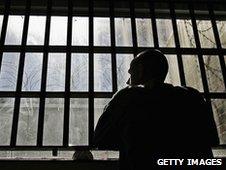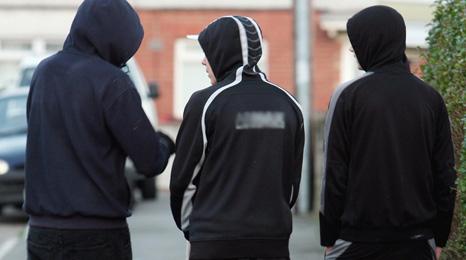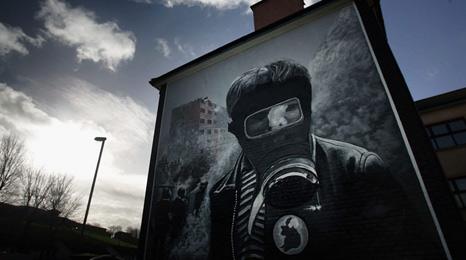Young offenders should meet victims of their crime
- Published

Restorative justice can mean an offender paying a victim compensation
Young offenders should be made to face up to their victims, according to a report out on youth crime in England and Wales.
It also says millions of pounds are being wasted every year on locking up under-18s.
The idea is to make children and teenagers aware of the harm they've caused by getting them to meet up with the person involved.
It can include the offender saying sorry or in some cases paying the victim compensation.
The Independent Commission on Youth Crime and Antisocial Behaviour wants the number of young people in custody halved saying as many as three out of four are convicted again within a year.
The commission says Northern Ireland, which introduced a similar programme of what's called restorative youth justice 12 years ago, is a good example of the benefits of the system.
The country's reoffending rate for young people after face to face meetings was 21%, while 71% of those in custody re-offended within a year.
'Frustrated'
Adam Murray, 21, was sitting in a pub in Northern Ireland, his attacker asked for a cigarette and then punched him in the face.
His attacker was convicted of assault but Adam met up with him afterwards for a "restorative meeting".
He said: "At first when I received the letter asking if I wanted to meet with the guy that punched me, it was pretty scary actually.
"It was the idea of seeing him face to face again.
"But I was reassured by the staff there that a police officer would be present."
But Adam says things didn't go to plan the first time he and his attacker met up.
He felt frustrated because he thought the offender just wanted to avoid going to prison and it wasn't something he wanted to do.
"I got the impression that he was not really engaging in the process, that he was doing it as a means of not having to go to court," he admitted.
"He seemed very insincere. He didn't really make eye contact."
Self-esteem
Restorative justice meetings often also involve family members, police and other officials.
Adam says things changed after he met his attacker for a second time.
"He told me about how he had done his courses and he'd done his community service, when I met him the second time his attitude has changed as well.
"He did make eye contact, he was more confident and his apology was sincere.
"The guy that walked into the room was a completely different guy than the guy that had hit me.
"He had higher self-esteem and he seemed to be really embarrassed by the fact that he had to do all of this, that he had hit me.
"You could tell that he was actually a really good guy."
- Published1 March 2010

- Published28 January 2010

- Published21 September 2009